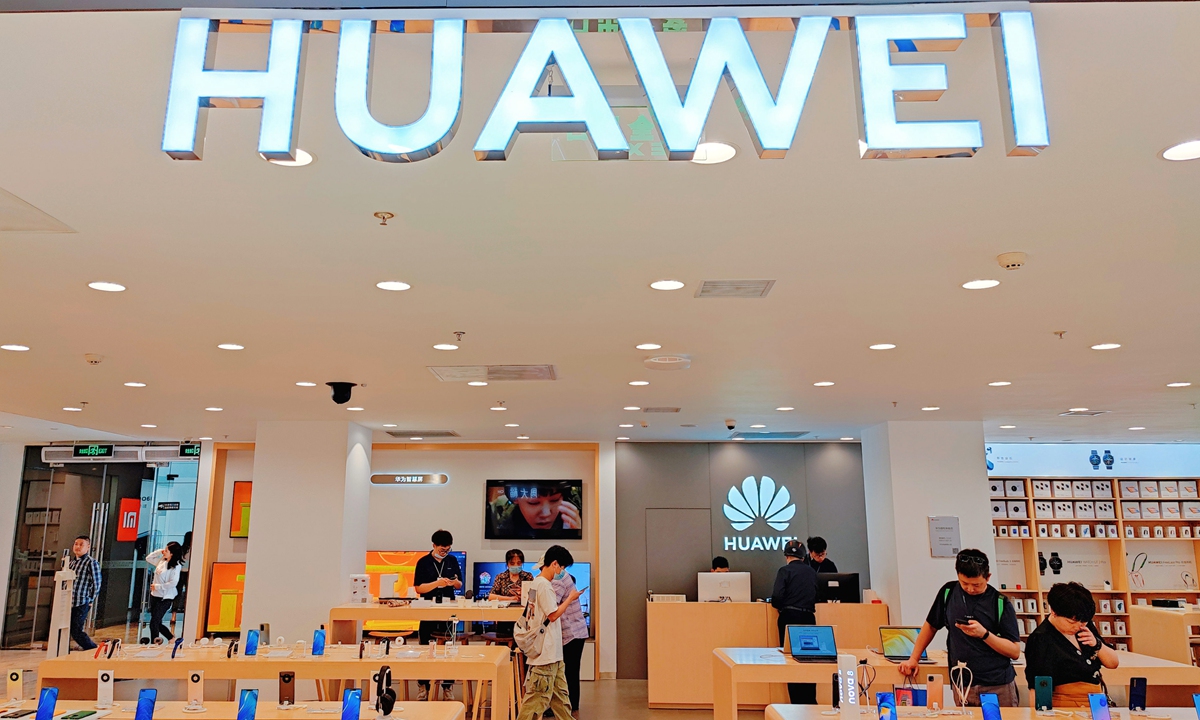
Huawei Photo: VCG
Chinese technology giant Huawei announced the creation of 10 new business "legions" following the initial move of setting up five such legions in October. This positive internal adjustment that will diversify its businesses around its cutting-edge 5G technologies will help the company get through difficulties amid the US crackdown, an expert said.
The fields that the ten legions cover are electric power, governance solutions, airports and rail links, interactive media, sports health, display chips, industry park networks, data center networks, data center bases, and site and module power, according to a post on Huawei's online community Xinsheng over the weekend.
Chief Financial Officer Meng Wanzhou attended a meeting to mark the formation of the legions.
It was her first public appearance since being named as rotating chairwoman, an appointment that came more than six months after her return from arbitrary detention in Canada.
CEO Ren Zhengfei said during the meeting that the international situation is changing, and Huawei is facing more and more severe pressure. The company must stabilize its position, actively adjust its formation, and firmly create value for customers, so it must adopt flexible strategies and tactics.
"We're adopting the reform of legionization, which is intended to shorten the connections among customer needs and solutions, product development and maintenance, and open up a fast and concise delivery process, while reducing material losses during the process," he said.
"We can see that the legions Huawei has launched so far are more closely related with the huge application opportunities of its leading 5G technologies, where it owns tons of patents," Zhou Xibing, a high-tech expert who follows Huawei closely, told the Global Times on Tuesday.
In October, Huawei launched its first five legions, which are engaged in coal mines, smart highways, customs and ports, smart photovoltaics, and data center energy.
The move to launch more legions is part of Huawei's Nanniwan project that aims to develop products free of US technology as it strikes out on its own following a series of stringent sanctions by the US government, according to Zhou.
"The company has to reduce its reliance on consumer terminals, especially the mobile phone business, and increase development efforts in other areas in the face of overseas pressure," Zhou said, adding that if Huawei's 5G technologies can be used in more scenarios like smart ports, railways and customs, its "spring" is expected to come soon.
Huawei, which has been under a US crackdown for three years, said recently that survival remains a top priority and talent and strengthened investment in research and development will be the key to addressing its difficulties.
According to its latest results, Huawei's 2021 revenue reached 636.8 billion yuan ($99.97 billion), down 28.6 percent year-on-year. But its net profit was 113.7 billion yuan, up 75.9 percent.
The company explained that "net profits grew mainly due to the sale of parts of our business, improvements in operational quality, and the optimization of our product mix."
Huawei paid dividends totaling 61.404 billion yuan to current and retired workers in its employee shareholder scheme, according to a filing with the Shanghai Clearing House published on Saturday.
Zhou believed that the company will further focus on reducing costs and losses while enhancing its profitability based on the model of those legions.
Global Times




